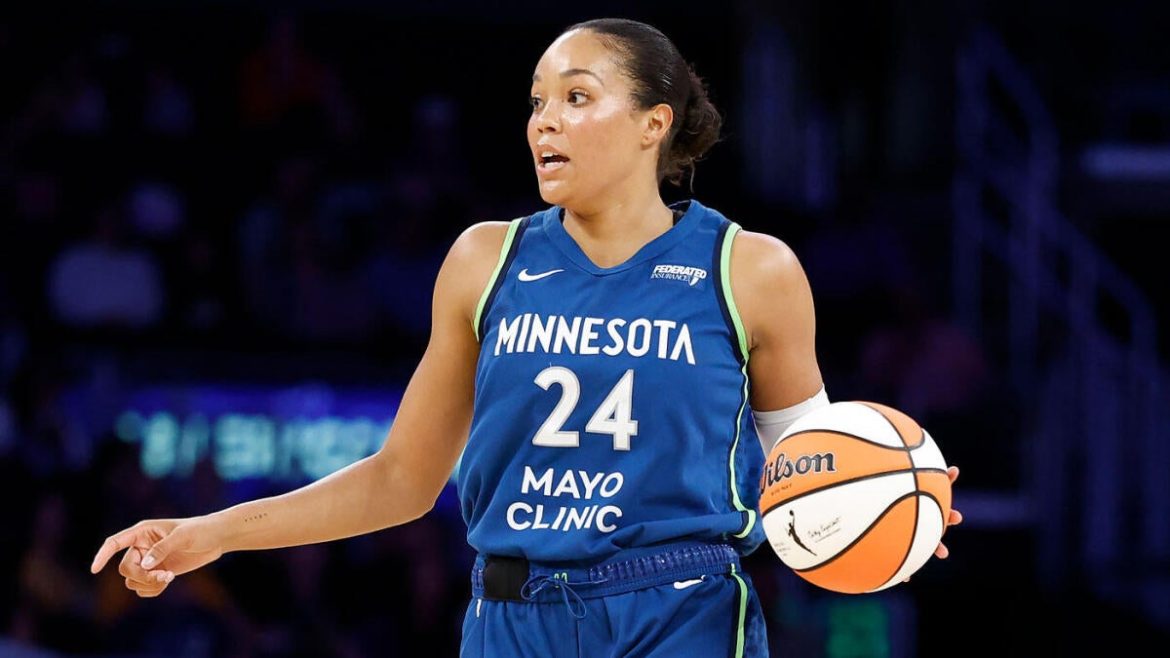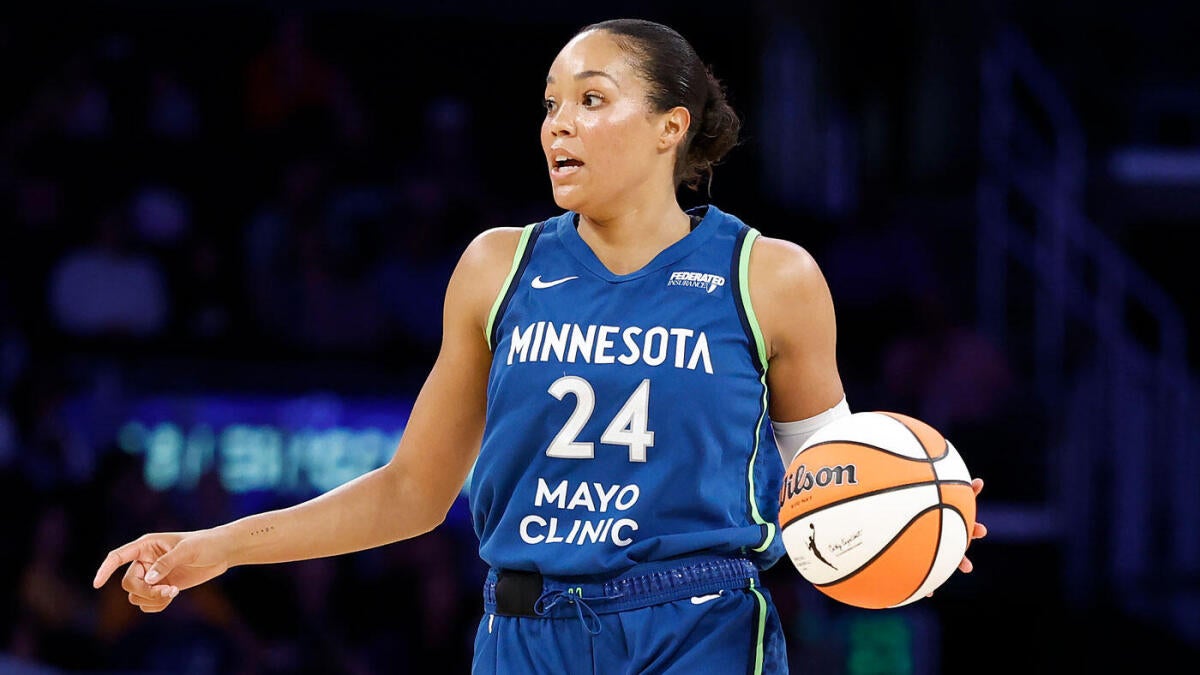The WNBA Commissioner’s Cup Final is not just another game; it’s a spectacle where talent, strategy, and ambition collide. This year’s edition pits the Indiana Fever against the Minnesota Lynx, a matchup brimming with storylines and high stakes. With a substantial prize pool on the line, both teams are primed to deliver a performance that transcends the regular season. This analysis delves into the key aspects of this highly anticipated game, exploring team dynamics, individual matchups, and strategic nuances, to offer a comprehensive preview of what promises to be a captivating contest.
The Ascent of the Indiana Fever
The Indiana Fever’s journey to the Commissioner’s Cup Final has been nothing short of remarkable. Once considered underdogs, they have defied expectations with a blend of youthful exuberance and seasoned leadership. At the heart of their resurgence is their prized rookie, Caitlin Clark. Clark’s transition to the professional level has been closely scrutinized, but her impact on the Fever’s offensive dynamism is undeniable. Her court vision, passing accuracy, and ability to score from anywhere on the floor have transformed the Fever into a potent offensive threat.
Clark’s statistical prowess is evident in her performance this season. She leads the league in assists per game, averaging 8.2, and is among the top scorers with 21.5 points per game. Her versatility as a playmaker and scorer makes her a dual threat that opponents struggle to contain. However, the Fever’s success is not solely reliant on Clark’s brilliance. The development of other players, such as Aliyah Boston, has been crucial. Boston’s presence in the paint provides a strong inside scoring option and a formidable defensive anchor. Her rebounding prowess and shot-blocking ability complement Clark’s perimeter game, creating a balanced offensive-defensive synergy.
Boston’s impact is quantifiable. She averages 12.3 rebounds per game, ranking her among the top rebounders in the league. Her shot-blocking ability, with an average of 2.1 blocks per game, adds another layer of defensive complexity for opponents. Veteran players like Kelsey Mitchell offer stability and experience, guiding the younger players through the pressures of high-stakes competition. Mitchell’s scoring ability, averaging 18.7 points per game, provides a reliable secondary option for the Fever’s offense.
Despite their offensive firepower, the Fever have faced challenges on the defensive end. Their defensive consistency has been a recurring issue, and they sometimes struggle to contain high-scoring opponents. To win the Commissioner’s Cup, the Fever must elevate their defensive intensity and execute their game plan with precision. Improving their defensive rebounding and limiting opponents’ second-chance opportunities will be critical. The Fever’s defensive rating of 108.3, while respectable, needs to improve to match the Lynx’s defensive prowess.
The Minnesota Lynx: A Dynasty Reimagined
The Minnesota Lynx, a franchise steeped in WNBA history, have re-emerged as a dominant force this season. With a blend of seasoned veterans and emerging talent, the Lynx have established themselves as a top contender. Their success is built on a foundation of defensive excellence and efficient offense, making them a formidable opponent for any team.
Napheesa Collier has been the driving force behind the Lynx’s resurgence. Her all-around game, characterized by scoring prowess, rebounding tenacity, and defensive versatility, has placed her firmly in the MVP conversation. Collier’s ability to impact the game on both ends of the court makes her a nightmare matchup for opponents. This season, Collier is averaging 20.4 points, 8.7 rebounds, and 2.1 steals per game, showcasing her versatility and impact on the game.
The Lynx’s roster is complemented by a supporting cast of talented players. Kayla McBride provides consistent scoring and perimeter defense, averaging 16.5 points per game. Her ability to guard multiple positions makes her a valuable asset on both ends of the floor. Diamond Miller adds athleticism and versatility, contributing 14.2 points and 4.3 assists per game. Veteran players like Aerial Powers bring invaluable experience and leadership to the team. Powers’ scoring ability, averaging 12.8 points per game, and her defensive intensity provide a steadying presence for the Lynx.
Defensively, the Lynx are one of the league’s stingiest teams, employing a combination of aggressive perimeter defense and staunch interior protection. Their ability to disrupt opponents’ offensive flow and force turnovers has been a key factor in their success. The Lynx’s defensive rating of 102.1 is among the best in the league, highlighting their defensive prowess. Their ability to limit opponents to low field goal percentages and force turnovers will be crucial in containing the Fever’s high-octane offense.
Key Matchups: Decisive Battles on the Court
The Commissioner’s Cup Final will be decided by several crucial matchups, each with the potential to swing the momentum of the game.
Caitlin Clark vs. Kayla McBride: This matchup pits the Fever’s offensive catalyst against the Lynx’s perimeter stopper. McBride’s ability to contain Clark’s scoring and limit her playmaking will be critical for the Lynx. McBride’s defensive tenacity and perimeter shooting make her a formidable opponent for Clark. Conversely, Clark must find ways to exploit McBride’s defense and create scoring opportunities for herself and her teammates. Clark’s ability to draw fouls and get to the free-throw line will be a key factor in this matchup.
Aliyah Boston vs. Napheesa Collier: This frontcourt battle features two of the league’s premier players. Boston’s interior presence and rebounding ability will be tested by Collier’s versatility and scoring prowess. Collier’s ability to score from the perimeter and post will challenge Boston’s defensive versatility. The team that wins this matchup will gain a significant advantage in the paint. Boston’s shot-blocking ability will be crucial in limiting Collier’s scoring opportunities.
Fever’s Bench vs. Lynx’s Bench: The depth of each team’s bench will play a crucial role in the outcome. The team whose reserves can provide a spark offensively and maintain defensive intensity will have a significant advantage. The Fever’s bench, led by players like Kelsey Mitchell, will need to contribute offensively and defensively. The Lynx’s bench, featuring players like Aerial Powers, will look to maintain their defensive intensity and provide scoring punch off the bench.
Strategic Approaches: Game Plans and Tactical Nuances
Both teams will enter the Commissioner’s Cup Final with meticulously crafted game plans, designed to exploit their strengths and expose their opponents’ weaknesses.
The Fever are likely to emphasize a fast-paced, high-scoring offense, predicated on Clark’s playmaking and perimeter shooting. They will need to push the tempo and force the Lynx into uncomfortable defensive situations. Defensively, the Fever must focus on containing Collier and limiting the Lynx’s second-chance opportunities. The Fever’s ability to transition quickly and capitalize on fast breaks will be crucial in stretching the Lynx’s defense.
The Lynx, on the other hand, are likely to employ a more deliberate approach, emphasizing ball movement and defensive discipline. They will need to control the tempo and limit the Fever’s transition opportunities. Offensively, the Lynx will look to exploit mismatches and capitalize on Collier’s scoring ability. The Lynx’s half-court offense, characterized by precise ball movement and efficient shooting, will be a key factor in their success.
Intangibles: The X-Factors
Beyond the Xs and Os, several intangible factors could influence the outcome of the Commissioner’s Cup Final.
Home-Court Advantage: The Lynx will have the advantage of playing in front of their home crowd at the Target Center. The energy and support of the fans could provide a significant boost. The Lynx’s home-court advantage has been evident this season, with a home record of 15-5. The Target Center’s atmosphere will be electric, and the Lynx will look to feed off the energy of their fans.
Experience: The Lynx’s veteran players have been through numerous high-stakes games, and their experience could prove invaluable in the pressure cooker of the Commissioner’s Cup Final. Players like Kayla McBride and Aerial Powers have experience in high-pressure situations and will be crucial in guiding the team through the final moments of the game.
Momentum: The team that establishes an early lead and maintains its composure under pressure will have a significant advantage. The Fever’s ability to start strong and maintain their offensive rhythm will be crucial. The Lynx, on the other hand, will look to control the tempo and limit the Fever’s scoring opportunities.
A Moment of Truth
The WNBA Commissioner’s Cup Final is more than just a game; it’s a culmination of hard work, dedication, and strategic planning. For the Indiana Fever, it’s an opportunity to validate their resurgence and cement their status as a rising force in the league. For the Minnesota Lynx, it’s a chance to add another trophy to their illustrious history and reaffirm their position as a WNBA dynasty.
As the final buzzer approaches, one question remains: Which team will seize the moment and etch their name in WNBA history? The answer will unfold on the court, in a battle of wills, skill, and determination. The Commissioner’s Cup Final promises to be a thrilling contest, showcasing the best of the WNBA and leaving a lasting impact on the league.





